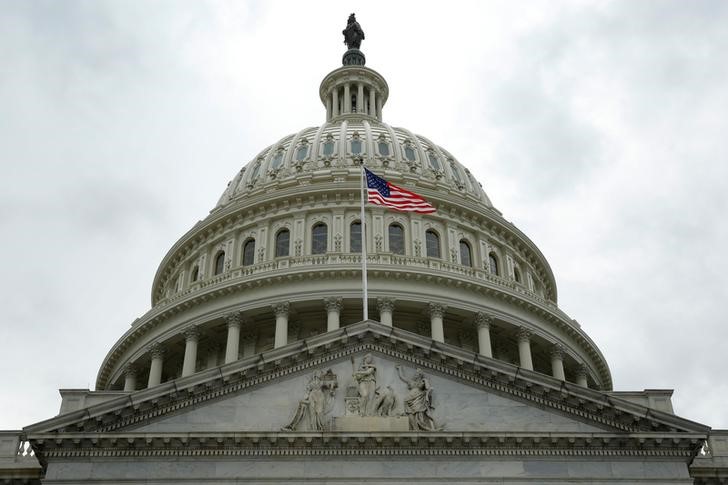Investing.com - In a bid to avoid an economic crisis, the US Senate has given its approval to a bill that extends the nation's debt ceiling by two years. The decision comes just in time, as the United States was on the brink of running out of funds necessary for meeting its financial obligations.
The final vote stood at 63-36 with 17 Republicans and four Democrats opposing the move. Earlier this week, the House had also endorsed the legislation with a vote count of 314-117.
This congressional nod ensures that discussions surrounding America's creditworthiness will not interfere with politics until after the next presidential election and provides some much-needed respite for markets regularly shaken up by such issues.
Despite securing bipartisan support, concessions made during negotiations proved unpopular among certain lawmakers from both parties. This led to challenges in passing legislation through Congress before risking default on US debts - an eventuality Treasury Secretary Janet Yellen warned could occur as early as Monday.
At its core, this agreement between President Joe Biden and House Speaker Kevin McCarthy introduces a cap on federal spending without affecting Social Security, Medicare, or military expenses. Consequently, it maintains spending levels steady for 2024 while imposing new limits for subsequent years until January 2025 when borrowing restrictions are lifted once again.
Moreover, eligibility criteria for food aid have been tightened under these provisions which mandate increased work requirements – a measure met with disapproval from progressive Democrats.
While some Republican representatives sought deeper spending cuts than those presented in April's GOP-backed proposal; their Senate counterparts expressed concern over inadequate funding allocated toward military expenditure within this bill itself.
Although defense budgets are set to increase by 3% during fiscal year 2024 followed by another rise of merely one percent in subsequent years; Senator Susan Collins (R) argued that accounting inflationary factors rendered this increase insufficient.
In response to these concerns, Majority Leader Chuck Schumer managed to steer clear of voting on 11 amendments – including a contentious natural gas pipeline project opposed by Democratic Senator Tim Kaine. Any approval for these would have resulted in the bill's return to the House.
To secure votes, White House staff individually contacted senators on Thursday and liaised with every Senate Democratic office about the vote. Emphasizing urgency, Schumer stressed that sending the bill back to the House risked defaulting on US debts.
Once assured of adequate support, he expressed relief stating: "America can breathe a sigh of relief because we are avoiding default."
